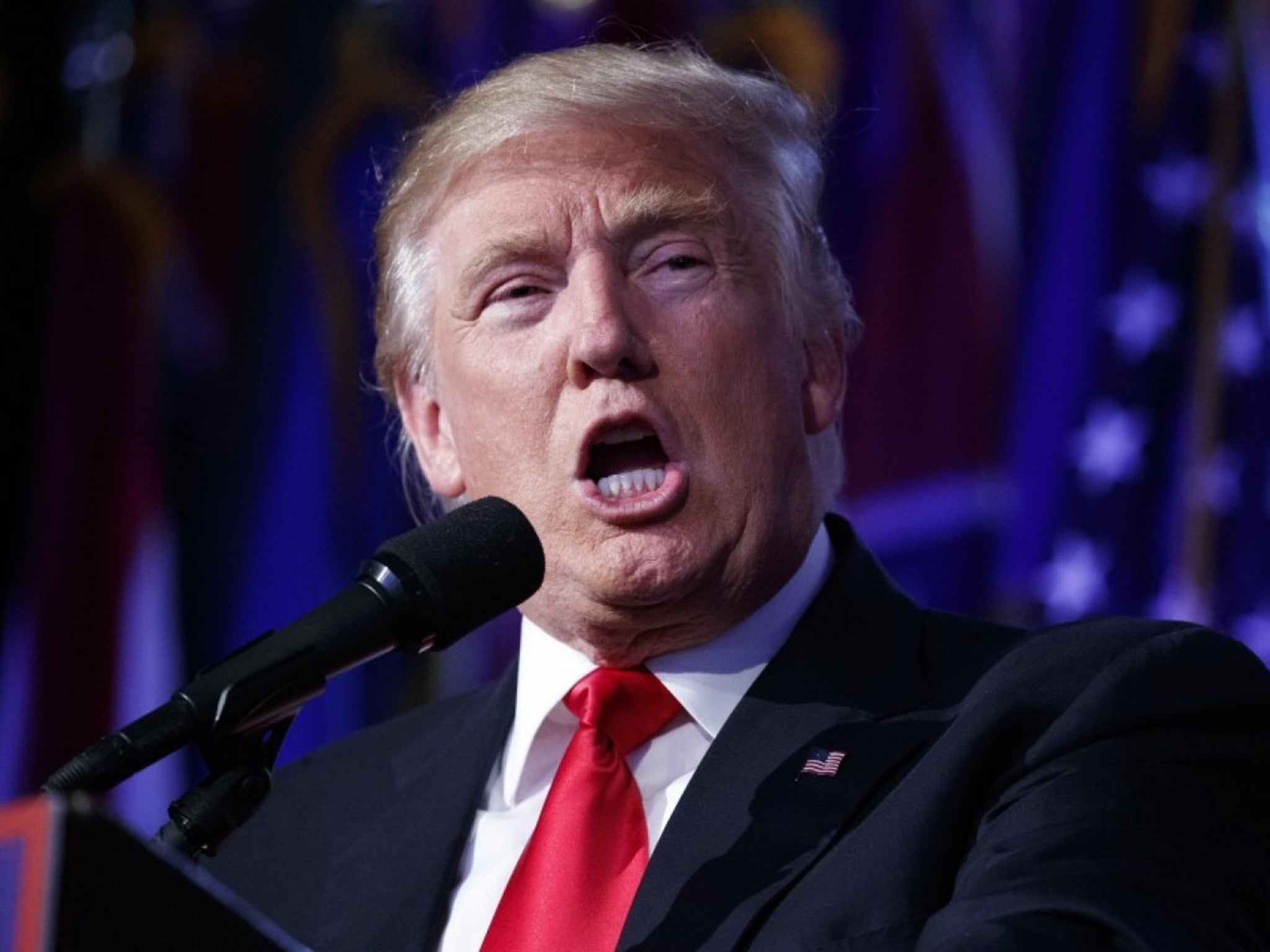Donald Trump may have blundered, but he spoke the truth about China
It may have made sense for America to snub Taiwan in the 1970s for the sake of Richard Nixon’s China policy, but the time has come for plain speaking

Your support helps us to tell the story
From reproductive rights to climate change to Big Tech, The Independent is on the ground when the story is developing. Whether it's investigating the financials of Elon Musk's pro-Trump PAC or producing our latest documentary, 'The A Word', which shines a light on the American women fighting for reproductive rights, we know how important it is to parse out the facts from the messaging.
At such a critical moment in US history, we need reporters on the ground. Your donation allows us to keep sending journalists to speak to both sides of the story.
The Independent is trusted by Americans across the entire political spectrum. And unlike many other quality news outlets, we choose not to lock Americans out of our reporting and analysis with paywalls. We believe quality journalism should be available to everyone, paid for by those who can afford it.
Your support makes all the difference.Donald Trump has blundered into a diplomatic quagmire by the simple act of taking a phone call of congratulation from the President of Taiwan. It is quite possible that Mr Trump and the staff managing his transition to the presidency – he will be inaugurated in 38 days’ time – were unaware of the niceties.
Since Richard Nixon opened up relations with communist China in the 1970s, the United States has respected Beijing’s “One China” policy, an important fiction of state propaganda which insists that the island of Taiwan is part of the Chinese nation, and which refuses to recognise the government in Taipei.
When the US restored diplomatic relations with the People’s Republic of China in 1979, relations with Taiwan, which still calls itself the Republic of China, broke off. By taking the phone call, the President-elect has, in effect, re-opened them.
Even if this was the product of ignorance, it may be no bad thing. It may have made sense for America to engage with China in the 1970s and draw it into the world community of nations and, just as importantly, into the world economy. That meant some rough justice for the Taiwanese, although they were compensated by economic prosperity long before their mainland cousins. But the value of continuing to go along with Chinese communist mythology has now expired.
There are many troubling aspects of Mr Trump’s imminent presidency, but in fact there are some aspects of his foreign policy that might be welcome precisely because he is so little bound by the weight of diplomatic history. It may take a blundering innocent to expose assumptions that have served their purpose and may now be discarded.
It may now be time to welcome Taiwan’s adoption of democracy in the 1990s, and to make the point more forcefully that it belies the idea that democracy is somehow un-Chinese. It may now be time to make a bit more of an innocent, blundering fuss about human rights in China and about the Chinese government’s appalling treatment of the Tibetan nation.
After all, if Boris Johnson, the British Foreign Secretary, can cause diplomatic Sir Humphreys to suck their teeth and ask if it is really wise to tell the truth about Saudi Arabia’s human rights record, let us apply the same principles all over the world.
Some of our writers, such as Mary Dejevsky and Patrick Cockburn, have made the point that Mr Trump’s respectful attitude towards Vladimir Putin might be a sensible step towards reducing conflict. There are many reasons to be doubtful about that, not least Mr Putin’s apparent attempt to interfere with democracy in the US.
It is worth keeping an open mind. It may be that de-escalating the tension between Russia and Nato is no bad thing – as long as that does not mean turning a Realpolitik blind eye to Russian atrocities in Syria. Peter Tatchell makes an unlikely trio with Mr Trump and Mr Johnson, but he, too, spoke the innocent truth at the weekend when he interrupted Jeremy Corbyn’s worthy speech about the principles of human rights with an angry reminder of a difficult practical case: what to do about Russian-backed bombing of hospitals and schools in Aleppo.
There are many reasons to be fearful of a Trump presidency, but if it allows the shaking up of some of the assumptions about what can and cannot be said about democracy and human rights around the world, some good may come of it.
Join our commenting forum
Join thought-provoking conversations, follow other Independent readers and see their replies
Comments